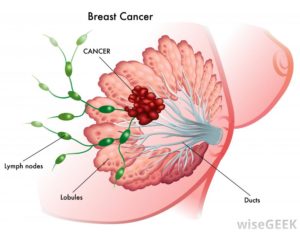- You are here:
- Home »
- Blog »
- Uncategorized »
- Medical Malpractice and Failure to Diagnose Breast Cancer
Medical Malpractice and Failure to Diagnose Breast Cancer
Approximately 1 in 8 women in the United States will develop invasive breast cancer during their lifetime. Of those, around 42,000 die per year as a result.
The stats are high, and early detection is the best way to prevent cases from becoming as extreme. Breast cancer is hard to treat and therefore requires as much time as possible to explore the range of treatment options. These usually include a mix of chemotherapy, radiation, hormone therapy, and surgery.
Medical malpractice and the failure of a physician to diagnose breast cancer can lead to devastating results. Typically, this negligence is due to some of the factors below.
What to do if you’re a victim of medical malpractice?
If your breast cancer worsens due to failure to diagnose breast cancer, you’re entitled to seek legal compensation. Though it may not erase what you’ve gone through, it will at least aid you in moving forward. Enlist the help of lawyers who are experts in dealing with injuries from medical malpractice to ensure you receive the compensation you deserve.
Here are the types of negligence that lead to failure to diagnose breast cancer:
Disregarding family history and genetics
The risk of developing breast cancer is strongly related to family history and genetics. One of the essential questions a physician can ask a patient is about any health problems faced by their relatives, especially cancer. Questions like this are part of completing a full medical history on a patient. If anyone within the family has been diagnosed with breast cancer, they should immediately have a blood test to determine if they have one of the BRCA genes, making them more susceptible to breast cancer. Not following this process can lead to failure to diagnose.
Failure to follow-up
Women are always encouraged to do frequent self-assessments of their breasts at home to identify any bumps or odd discharge. When mentioned to a physician, they will sometimes fail to follow-up with their patients on the status of these abnormalities. If a patient reports a bump, they should always get a thorough check from a physician. Even if the physician is unable to locate it, they should continue to follow-up and perform an ultrasound just in case. By failing to follow-up with patients, the physician may fail to diagnose breast cancer.
Miscommunication
There are many different types of physicians involved in the process, from screening to treating breast cancer. As the patient is passed around between physicians, miscommunication could end in failure to diagnose. If the primary care physician notices a specific area of concern and orders a mammogram but doesn’t specify their area of concern, then the radiologist may miss it. With the possibility of human error, there can be miscommunication between physicians at various stages. It’s incredibly important that all parties involved, including the primary care physician, radiologist, and surgeon, stay in close-contact until all concerns are addressed. If they don’t, it could lead to failure to diagnose breast cancer.



